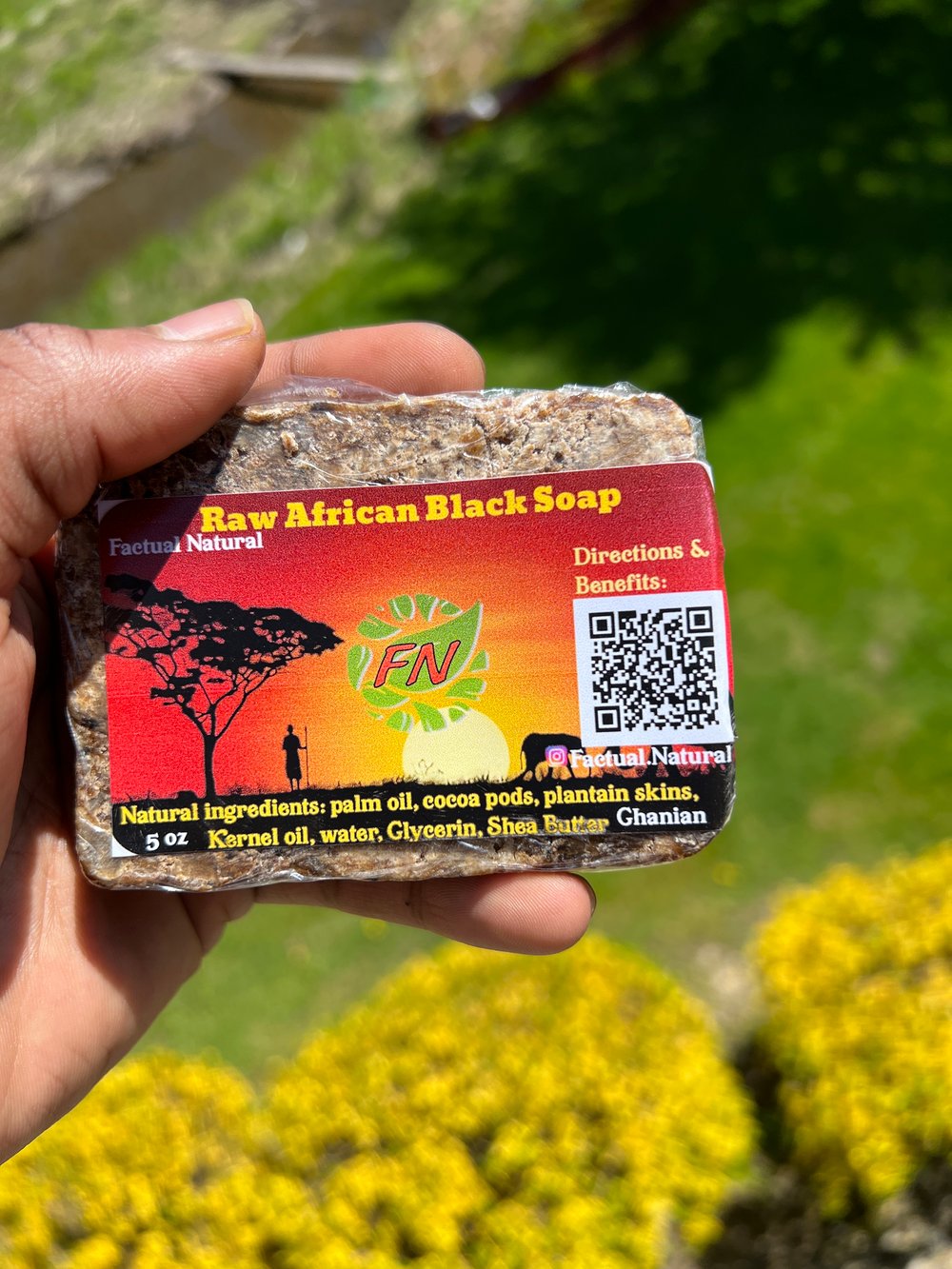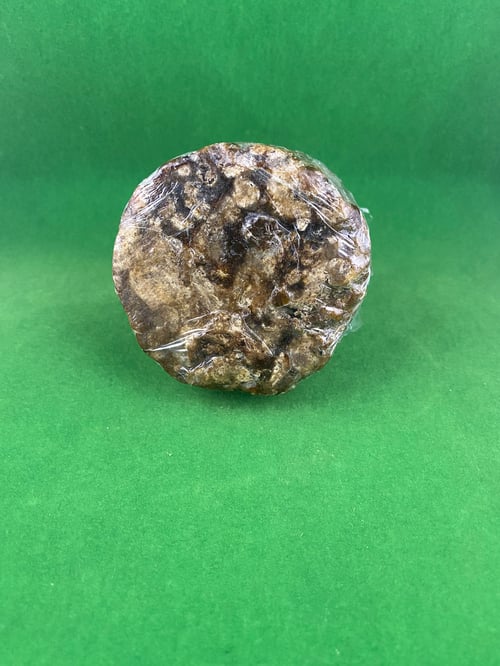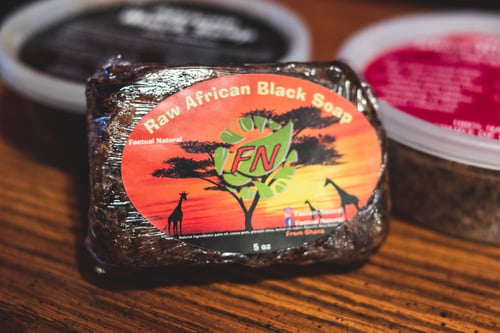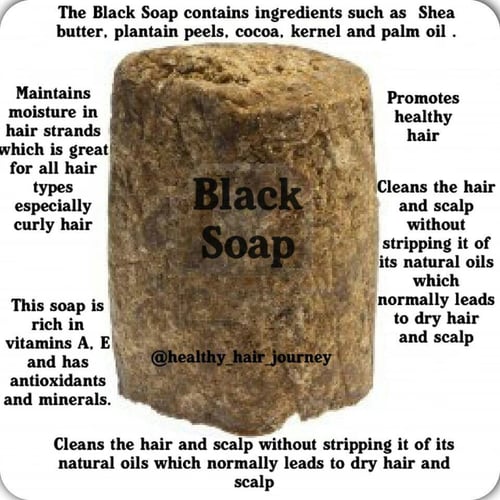Raw Natural African Black Soap
$5.00
Raw Natural African Black Soap
Source: Ghana
History on black soap: African black soap originated from amongst the Yoruba tribe in Nigeria and the Yoruba communities in Benin and Togo, West Africa. The soap goes by various names depending on how and where it’s made, Nigeria / Ghana - Ose Dudu, Dudu Osun, Alata Samina and Anago Samina. The soap contains no lye, it's 100% natural. The plantain skins and cocoa pod ash are used to saponify the oils and butters.
Ingredients: palm oil, cocoa pods, plantain skins, kernel oil, water, Glycerin, Shea Butter
100% Raw Natural, NO ADDITIVES OR SYNTHETIC BYPRODUCTS
Benefits:
* 1. Helps to remove scars caused by acne. Since acne is not caused by dirt, but due to the release of excessive oils within the skin, the soap cannot REMOVE acne. But use of African black soap helps to remove scars cause due to acne.
* 2. Helps to remove skin irritations. Use of black soap helps to remove skin irritations like rashes.
* 3. Suitable for all skin types. Black soap can be used for the treatment of problems on all types of skin including the dry and rough, oily and moderate skins.
* 4. Beneficial for skin diseases. Black soap is very beneficial for reducing the discomforts that are associated with skin diseases like psoriasis and eczema
* 5.Delays ageing on the skin. Regular use of black soap helps to remove facial lines that are mostly early signs of ageing. Thus black soap can be used to delay ageing of skin.
Some people may experience a skin purging effect as the soap naturally detoxifies the skin. You may see some breakouts initially that will clear to soft, glowing skin.
Proper use of Black Soap:
* raw African black soap, take the soap apart and knead it into a ball to make sure there aren’t any jagged edges, and rub between hands to work into a lather. If you apply the soap directly to the skin, do so gently, because there could still be particles that can tear the skin.
* Washing and rinsing with cool water can help reduce the possibility of stinging and redness. Avoid getting the soap in the eyes.
* If you have sensitive or very reactive skin, don’t leave the soap on the skin for a long period of time.
* You could experience tingling or a burning sensation in acne areas, open sores, and cuts.
* If your skin feels squeaky clean afterward, it means the skin is too dry. Try reducing the amount of soap that you use. A very small amount (the size of a marble) can cleanse the face and neck
Recommended you put shea butter, aloe, even Vaseline, or any good moisturizer afterwards to avoid skin getting too dry from air dry
Does not expire.





